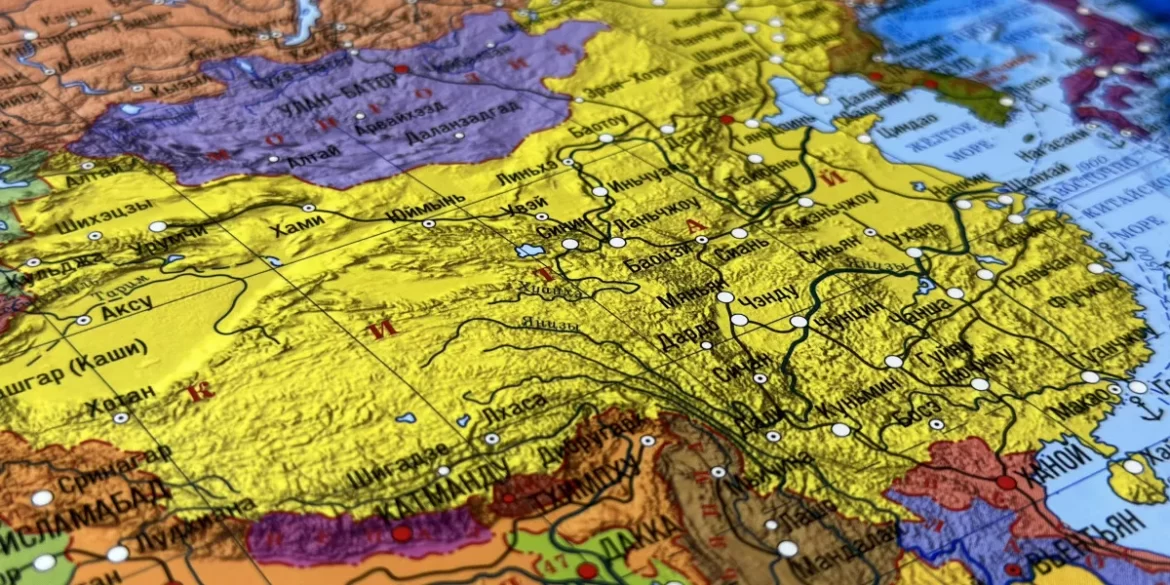This will have a significant impact on the European market, which is being created in this area by the US. At least 62 mining projects around the world where Chinese companies are extracting lithium and other resources needed for green technology already exist.
China controls the supply of fossil fuels for the green economy
China is emerging as a defining supplier of resources for the green economy. It is now the global leader in manufacturing process equipment and components for green technologies, controlling the entire process from raw material extraction to the final product. This allows it to strengthen its geopolitical position.
State authorities on technology, trade and defense have held a series of confidential meetings recently, discussing how to respond to US sanctions on chip shipments to Chinese companies.
In July, China responded to US sanctions by imposing export restrictions on gallium and germanium. These materials are widely used in the manufacture of key products such as electric cars, microchips and military equipment.
A spokesman for the government agency said, “We had several options to respond. We didn’t choose the most decisive one, but it was a precautionary action.”
This response signals that China controls the supply of twenty key minerals essential to the economy and defense. It also demonstrates that China is willing to use its advantages in the geopolitical arena.
China will increase lithium production
Plans to increase China’s lithium production are becoming a reality as the second phase of the Kamativi Mining project in Zimbabwe will begin in June, the South China Morning Post newspaper reported from Hong Kong. The move will significantly increase the production of lithium-containing ore, as the metal, along with cobalt and nickel, is an important component for making batteries.
Investment in mining these rare metals in African countries is being actively pursued by both Chinese and American companies. China already owns several mines in Zimbabwe, Mali, Democratic Republic of Congo and Ethiopia. Chinese companies currently own three-quarters of the global lithium-ion battery market, and the components used in the batteries are manufactured in other countries.
How China collapsed nickel prices
The sharp drop in nickel prices was caused by China, which cut prices from $50,000 to $16,000 per ton. To support low prices, China has invested in increasing nickel production from mines in Indonesia. In turn, Australia is looking to develop alternative processing methods, partnering with India, Japan, Korea, the United States and the United Kingdom to extract key minerals.
Indonesia could provide 65 per cent of the world’s nickel supply by 2025.
By the year 2025, Indonesia could be responsible for 65 per cent of global nickel supply. In recent days, its government has listed nickel as a critical mineral, making it eligible for grants under the Critical Minerals Facility programme worth about A$4 billion (US$2.6 billion). At the same time, the Premier of Western Australia has granted mining companies a temporary royalty rebate of 50 per cent for the next 18 months, provided nickel prices are below $20,000 a ton.
Lithium, cobalt, nickel and graphite play a key role in battery production. Jim Chalmers, Australia’s treasury chief, said these resources are the foundation for future clean energy technologies. Australia and Indonesia are the world’s largest nickel producers, with total reserves of about 21 million tons each.
China is the largest consumer of nickel
China acts as the major consumer of nickel. It accounts for 35 per cent of the world’s nickel production, as well as about 15 per cent of Indonesia’s processing of the metal. Moreover, China absorbs about 80 per cent of all rare metals in the world, including 90 per cent of lithium, 70 per cent of gallium and 70 per cent of germanium. Efficient processing technologies and a competitive labour market provide China with a significant advantage, making it a leading consumer rather than a mere middleman in the market.
While Chile ranks first in the world in copper and rhenium mining, China leads in their processing. The Democratic Republic of Congo leads in cobalt production, but again, the processing of this metal is mostly done in China. Although Australia is the largest lithium producer, most of its processing is also done in China.
2,054 total views, 2 views today



